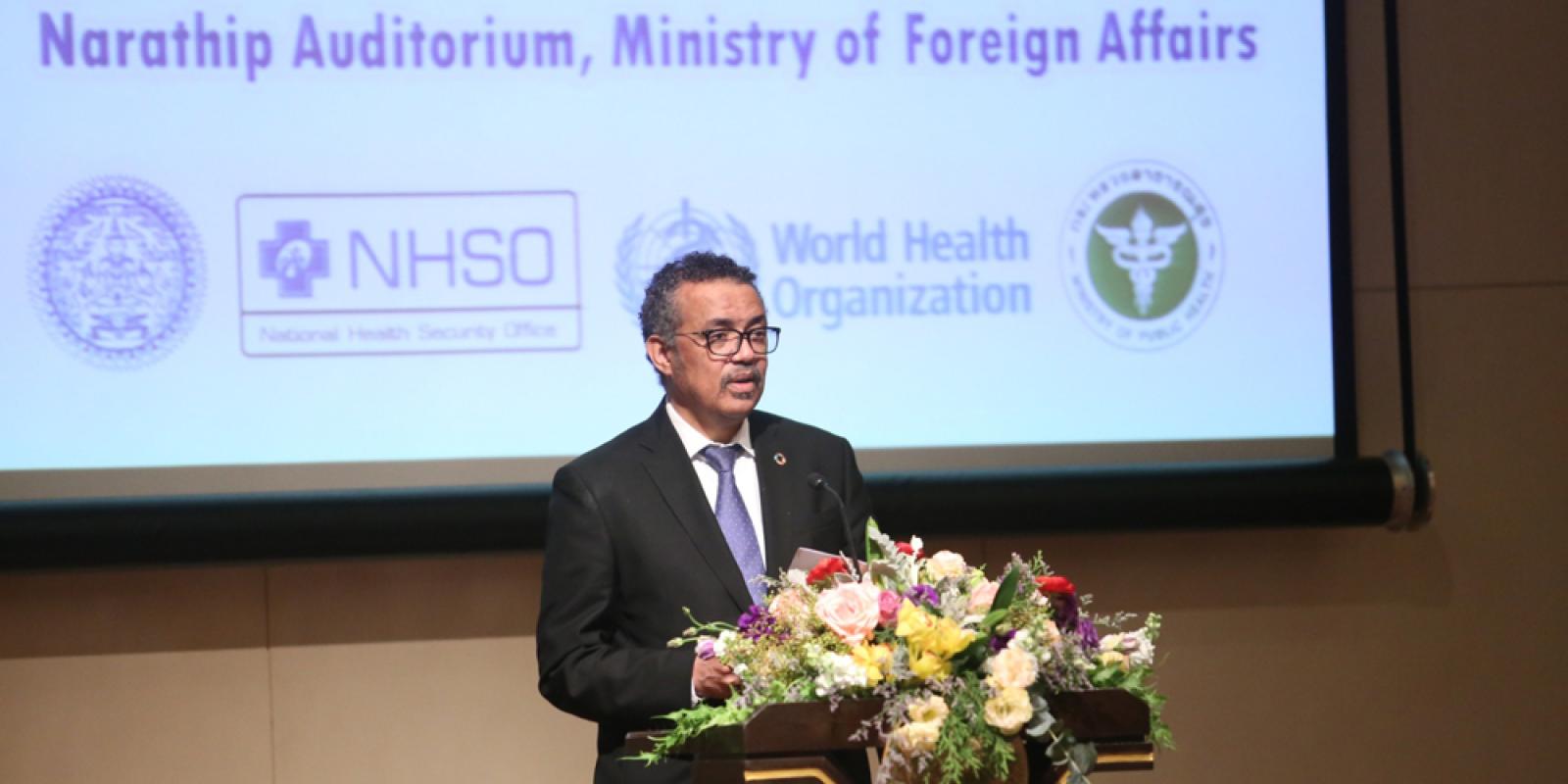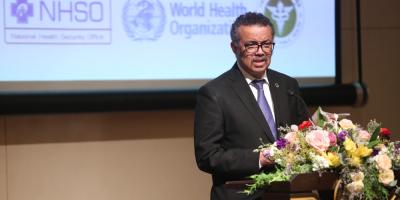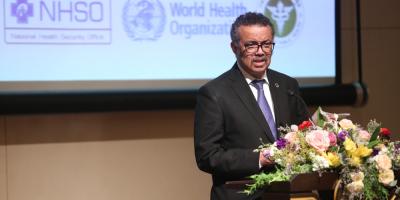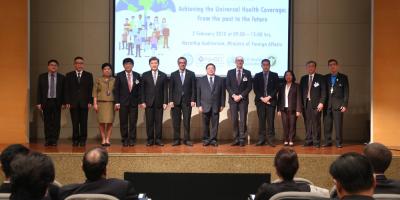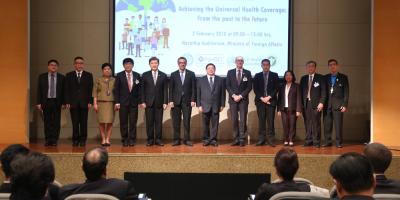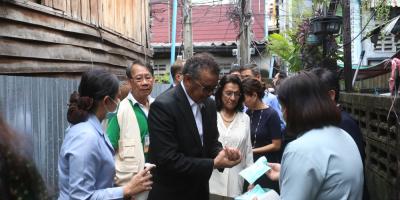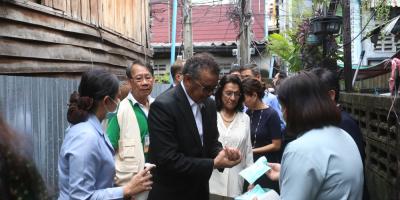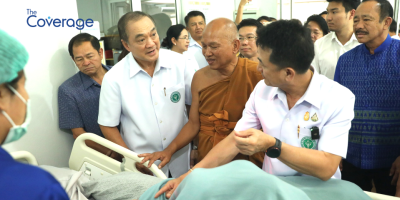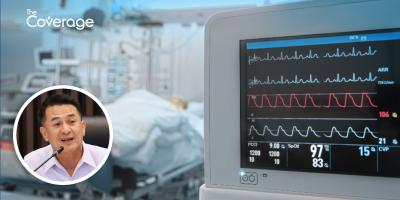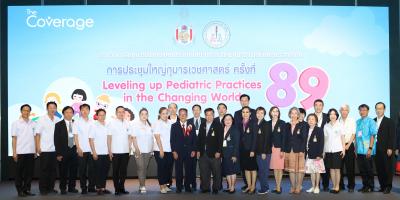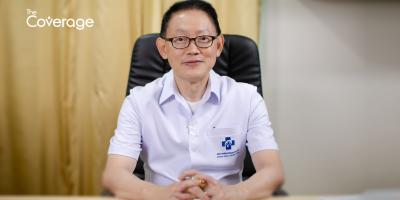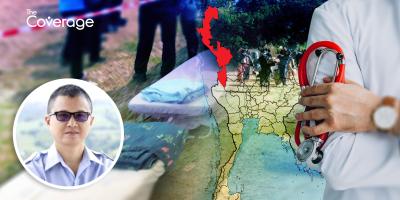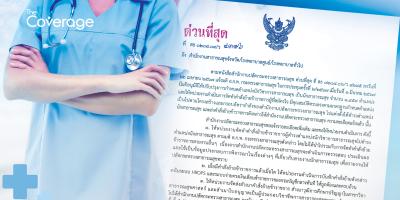World Health Organization (WHO) is working with Thailand to promote and implement Universal Healthcare Coverage (UHC) in global stage.
Tedros Adhanom Ghebreyesus, WHO Director-General, said the WHO had been putting efforts to urge all countries to adopt UHC as ‘healthcare for all’ solution.
Spoke at a meeting ‘Achieving the Universal Healthcare Coverage: from the past to the future’ at Ministry of Foreign Affairs on Friday (2 Feb 2018), Dr Ghebreyesus said Thailand had achieved in UHC implementation. The country is a role model in helping other countries to shape their UHC policies.
However, “the dream for health for all remains unfulfilled,” he said.
At least half of the world’s population can’t obtain essential health service, according to Tracking UHC: 2017 Global Monitoring Report conducted by the World Bank and WHO.
Released in Dec 2017, the report points out that 800 million people spend at least 10% of their household budget on health expenses for themselves or their family members. These expenses forces almost 100 million people into extreme poverty.
If this continue, Dr Ghebreyesus said, the world would not achieve Social Development Goals of which goal is to ensure healthy living and promote well-being for all at all ages. This means almost a billion people need access to UHC, which reduces health inequality by providing healthcare and drug access to people.
Some concrete concepts are required to step toward UHC such as commitment of countries to increase health service access and reduce out of pocket spending. Meanwhile, each country must work together to reduce healthcare access gaps.
There are many examples of progress on UHC around the world, especially in some low- and middle-income countries. Kenya’s government has announced UHC as part of its priority policy while worked in developing the scheme constantly.
In 2017, Madagascar's government council passed a decree establishing a national health solidarity fund as part of its UHC efforts. India, on Thursday (1 Feb), has announced the national healthcare scheme to provide free health services to half a billion of its poorest citizens.
UHC has clearly become the global agenda. This has reflected in the global community’s adoption of the date 12 Dec as an annual UHC day to highlight the growing global momentum of the scheme.
“We look at strong UHC implementation [of countries] to share experience learned. Thailand is one of the country,” said Dr Ghebreyesus, adding that WHO will continually work in collaboration with Thailand to adopt UHC model to other countries.
Since UHC was introduced in Thailand in 2002, the scheme has covered 75% of 69 million Thai population. The other schemes, Social Security Scheme and Civil Servant Health Welfare covers 18% and 7% respectively.
The scheme was launched few years after the 1997 financial crisis. But UHC was able to survived in its early years even though in such a financial difficult time, because of its capitation payment method that allows Thailand to operate saving-cost healthcare.
According to Public Health Ministry, it’s estimated that there is additional 20% return on investment in UHC. When people can access free healthcare, they can relieve burden on healthcare expenses and remain good health. In return, they enhance economy as a whole and increase consumption power. UHC also reduced catastrophic health expenditure by four times in between 2002 and 2014.
Public Health Minister Piyasakol Sakolsatayadhorn said during the seminar that there were some challenges lying ahead including exposure to expensive new technology and drug and increasing of aging population and chronic diseases. It must be assured that the scheme’s financial system is sustainable, adequate, fair and efficient, said Dr Piyasakol.
Tim Evans, Senior Director of Health, Nutrition and Population Practices from World Bank Group, said investing in human capital is one of primary investments to eliminate poverty.
Two by third of wealth in countries across the world is generated by human capital, he said, so to invest in people’s survival such as improving healthcare access can make “very handsomely” return to the society.
Some of many poor countries have made tremendously progress toward UHC, meaning to implement UHC is not an issue of not having resources. It is political choices as well as society mobilization.
“The 30-bath scheme is a big bold reform. It is the right thing even though it came with the tricky time after financial crisis,” said Evans.
However, he said that it was essential to improve primary care as it’s at the frontline of UHC.
- 74 views
